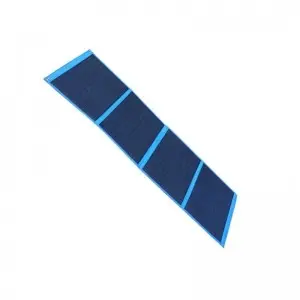Solar panels have become an increasingly popular and environmentally friendly alternative to traditional energy sources. They harness the sun’s energy to provide clean energy and reduce dependence on harmful fossil fuels. But have you ever wondered how solar panels work at night? In this blog, we’ll delve into the mysterious workings of solar panels and reveal their nighttime capabilities.
The basics of solar panels:
To understand how a solar panel works at night, we must first grasp the fundamentals of how it works during the day. Solar panels consist of photovoltaic (PV) cells that convert sunlight into electricity through the photovoltaic effect. These cells are usually made of the semiconductor material silicon.
During the day, sunlight excites electrons in photovoltaic cells, causing them to detach from atoms and generate an electric current. This energy is then stored in batteries or used to directly power our homes and devices. But what happens when the sun goes down?
Energy storage system introduction:
Contrary to popular belief, solar panels can still generate electricity at night, albeit through a different mechanism. The energy storage system comes into play to ensure continuous power supply at night. These storage systems act as reservoirs for excess energy generated during the day, which can then be used at night.
One of the most common energy storage solutions is the use of batteries. Excess solar energy generated throughout the day can be stored in these batteries so that it can be used when the sun is not shining. This stored electricity can power homes, street lights or other devices at night.
Environmental Factors and Backup Power:
While energy storage systems can effectively provide power at night, they do have limitations. The amount of energy that can be stored depends on the capacity of the battery and the efficiency of the solar panels. Additionally, environmental factors such as clouds or rain can affect the amount of energy produced during the day and subsequently stored for use at night.
To address these challenges, some solar panel systems are equipped with backup power, such as connection to a conventional grid. This ensures continuous power supply even during periods of low sunlight or high energy demand.
The promise of new technology:
In recent years, advances have been made in the field of solar panel technology, further improving their nighttime capabilities. Researchers are exploring innovative ways to overcome the limitations of energy storage systems and improve overall efficiency. One of these developments is the use of solar panels that can absorb and store energy from the moon, offering a potential solution for future lunar settlements and off-grid sites.
in conclusion:
Solar panels have revolutionized the way we use energy, contributing to a greener future. While they primarily rely on sunlight to generate electricity, ingenious energy storage bridges the gap, ensuring continuous power even at night. There is a bright future ahead for solar panels as technology continues to evolve to shine even in the darkest of hours.
Post time: Jul-19-2023
